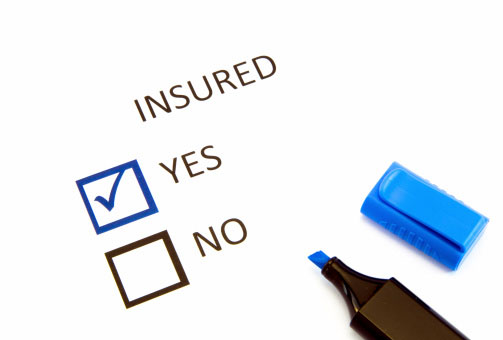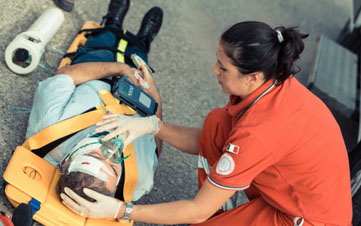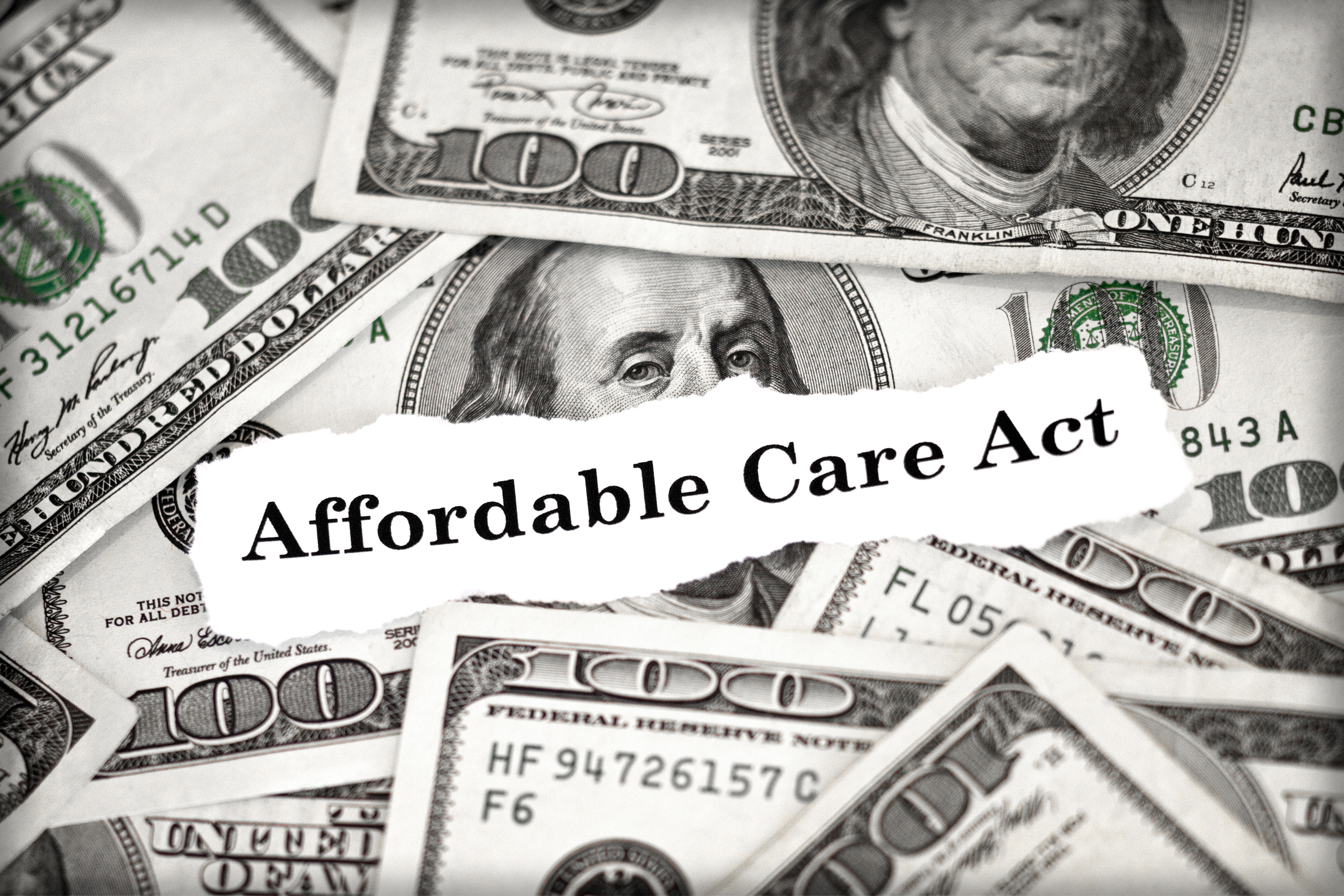10 Surprising Things Insurance Covers
Accidents happen.


Profit and prosper with the best of Kiplinger's advice on investing, taxes, retirement, personal finance and much more. Delivered daily. Enter your email in the box and click Sign Me Up.
You are now subscribed
Your newsletter sign-up was successful
Want to add more newsletters?

Delivered daily
Kiplinger Today
Profit and prosper with the best of Kiplinger's advice on investing, taxes, retirement, personal finance and much more delivered daily. Smart money moves start here.

Sent five days a week
Kiplinger A Step Ahead
Get practical help to make better financial decisions in your everyday life, from spending to savings on top deals.

Delivered daily
Kiplinger Closing Bell
Get today's biggest financial and investing headlines delivered to your inbox every day the U.S. stock market is open.

Sent twice a week
Kiplinger Adviser Intel
Financial pros across the country share best practices and fresh tactics to preserve and grow your wealth.

Delivered weekly
Kiplinger Tax Tips
Trim your federal and state tax bills with practical tax-planning and tax-cutting strategies.

Sent twice a week
Kiplinger Retirement Tips
Your twice-a-week guide to planning and enjoying a financially secure and richly rewarding retirement

Sent bimonthly.
Kiplinger Adviser Angle
Insights for advisers, wealth managers and other financial professionals.

Sent twice a week
Kiplinger Investing Weekly
Your twice-a-week roundup of promising stocks, funds, companies and industries you should consider, ones you should avoid, and why.

Sent weekly for six weeks
Kiplinger Invest for Retirement
Your step-by-step six-part series on how to invest for retirement, from devising a successful strategy to exactly which investments to choose.
Accidents happen. That’s why you have insurance. You’re probably familiar with the common calamities that are covered by standard policies. House catches fire? File a homeowners insurance claim. Get into a fender bender? Call your auto insurer. Visit the emergency room? Flash your health plan’s card. But what if your dog bites the mailman? A meteorite crashes through your roof? Or rioters torch your car? Suddenly, the answers are less clear.
Here are ten things that you might not realize are covered by standard insurance policies. Take a look. Just be aware that even though your insurer will pay the claim, you might not want to file a claim if the expense doesn’t greatly exceed your deductible. A series of small claims can cost you a claims-free discount or even prompt your insurer to drop you at renewal time.

Volcanic Eruptions
Most of us don’t have to worry about all of our earthly possessions being engulfed by lava and ash. But it’s a real threat for residents of Alaska, California, Hawaii, Oregon and Washington. Fortunately, standard homeowners policies usually cover damage from volcanic eruptions. If you have comprehensive coverage on your vehicle, then it should also be covered for damage from a volcano, says Penny Gusner, consumer analyst for CarInsurance.com.
However, not all natural disasters are treated equally. For example, while vehicle damage caused by earthquakes and floods is covered by auto insurance, says Gusner, damage to your home caused by earthquakes and floods isn’t covered by standard homeowners policies. To get earthquake coverage for your home, you'll need to add an endorsement to your existing policy or buy a separate policy, which is available from a private insurer (or the California Earthquake Authority, if you live in that state). You can buy a flood insurance policy for your home through the National Flood Insurance Program.

Weight Loss
As a result of the Affordable Care Act, you may be able to receive free weight-loss counseling under your health insurance plan. This is one of several free preventive-care services made available through Obamacare. Others include well-baby and well-child visits, many cancer screenings, diabetes and cholesterol tests, and counseling on reducing alcohol use and quitting smoking.
Many employers also offer weight-loss programs, discounts on gym memberships and classes in nutrition to encourage employees to improve their health. Some employers even offer financial incentives to participate in preventive-care programs, such as lower premiums, lower deductibles, a contribution to your health savings account, and gift cards or cash.

Rodent Damage to Your Car
Ugh, those cursed mice chewed through your car’s wiring again. The good news is that your auto insurance may pay for the rodent damage. Most insurers provide coverage under comprehensive auto policies if animals such as mice or squirrels damage your vehicle’s electrical system, says Gusner, of CarInsurance.com. It’s considered an “other than collision” auto claim, and you would not be held at fault for it, she says. Check the language of your policy, though, to make sure it provides this sort of coverage. Some policies don’t.
On the other hand, says Kate Hollcraft, a spokesperson for Allstate, homeowners insurance does not cover damage caused by rodents or domestic animals such as dogs and cats. However, it will provide protection if a wild animal other than a rodent gets into your house and causes damage.

Meteorites
Ok, we admit the chances are slim that a meteorite, satellite or other falling object will strike you, your home or your car. But slim odds aren’t the same as zero odds. Rest assured, though, that your insurance should provide protection in such an unlikely event.
According to the Insurance Information Institute, damage caused by falling objects usually is covered under standard life, auto and homeowners policies. Homeowners policies cover damage to the home and to belongings inside it. The optional comprehensive portion of an auto policy covers damage to a car, and the liability portion of a policy would kick in if a falling object caused an accident. And a life insurance policy would pay beneficiaries if the policyholder was struck and killed by a falling object. Heck, even health insurance would kick in if you escaped death but needed treatment for your injuries.

Riots
Let’s say a protest turns violent or a victory celebration gets out of hand and your car or home is damaged during the commotion. Are you covered? Yes. Damage caused by riots is covered under standard homeowners policies and comprehensive auto insurance.
- You and your property should also be protected in the event of a terrorist attack if the damage results from such things as explosions, fire and smoke. Homeowners insurance will protect your property and personal possessions, renters insurance will cover your possessions, and comprehensive auto insurance will fix or replace your car. But if a war erupts or there is a nuclear, biological, chemical or radiological attack, auto and homeowners insurance will not cover the damage, according to the Insurance Information Institute.

Dog Bites
If your dog bites someone, your homeowners policy should provide coverage to help settle the legal and medical bills. Good thing: One-third of all homeowners insurance liability claims are related to dog bites. A standard policy usually provides $100,000 to $300,000 in liability coverage. Homeowners insurance also provides medical coverage to pay doctors’ bills if someone is injured by your pet or on your property.
Considering that some lawsuits can end up costing hundreds of thousands of dollars, the insurance coverage you have might not be enough to pay for all the bills if your dog, cat or other pet injures someone. To offset the risk of a costly court verdict, consider getting an umbrella liability policy. For about $150 to $300 a year, you can get $1 million worth of additional liability coverage. See How to Add a Personal Liability Umbrella Policy for more information.

Breast Pumps
Opting to breastfeed your child provides financial benefits as well as health benefits. It’s a lot cheaper than formula and feeding supplies, which can cost more than $1,500 a year, according to the federal Office on Women’s Health. But breastfeeding isn’t free if you need to purchase a breast pump, which can run $250 or more for an electric model.
However, the Affordable Care Act now requires most health insurance plans to provide breastfeeding equipment at no cost. Whether you’re provided with a manual or electric pump, a rental or new one depends on your plan and your doctor’s recommendation. Most health plans under the new law provide a variety of other free preventive services for women, including contraception, mammograms and screenings for conditions such as gestational diabetes.

Dorm-Room Theft
If Junior’s flat-screen TV disappears from his dormitory, don’t panic. Most parents’ homeowners insurance policies provide protection for college students’ belongings while they’re away from home. The rules vary by insurer, but most require the student to be living on campus, enrolled in school full-time and younger than 26, according to the National Association of Insurance Commissioners.
Some insurers limit off-premises coverage to 10% of the personal-possessions coverage in a policy, says Jeanne Salvatore, of the Insurance Information Institute. Most homeowners policies provide coverage for possessions at 50% to 70% of the dwelling’s coverage. If your home is insured for $200,000, you’ll have $100,000 to $140,000 worth of coverage for your belongings. So coverage for your kid’s stuff at college will be limited to $10,000 to $14,000. Students who live off-campus might not be covered at all. In that case, consider a renters insurance policy for about $15 to $30 a month. See Why Renters Need Insurance for more information.

Lost Wages
You’re likely aware that disability insurance will replace a portion of your income for a certain period if an illness or injury leaves you unable to perform your job (see Insurance That Will Protect Your Income). Disability coverage is often provided by your employer. You can buy your own policy if you’re self-employed, or look into supplemental coverage if your employer’s plan is skimpy.
What you might not know is that your auto insurance could help cover lost wages, too. If your policy includes personal-injury protection (PIP) coverage, which is mandatory in some states, you can recover at least a percentage of lost wages if you’re injured in an automobile accident, says Gusner, of CarInsurance.com. How much can be claimed varies depending on state laws and the terms of a specific policy, she says. Your policy’s uninsured/underinsured motorist bodily injury coverage might also cover some lost wages if, as the name implies, the other driver’s coverage is insufficient or nonexistent. Again, coverage varies by state and specific policy terms.

Defense Lawyer
No matter how careful you are, all it takes is a single accident at your home or in your car to thrust you into a costly legal entanglement. This is where the liability portion of your auto or homeowners insurance kicks in. Liability coverage should help foot the bill for a variety of legal costs, including hiring a lawyer to defend you in court.
Language in your policies should outline the particulars about how your liability coverage works when it comes to paying attorney fees, court costs and the like. CarInsurance.com’s Gusner says to look for wording in your policy to the effect of “We will settle or defend, as we consider appropriate.” Once again, consider whether you need an umbrella liability policy to protect against a big adverse judgment.

Profit and prosper with the best of Kiplinger's advice on investing, taxes, retirement, personal finance and much more. Delivered daily. Enter your email in the box and click Sign Me Up.

Award-winning journalist, speaker, family finance expert, and author of Mom and Dad, We Need to Talk.
Cameron Huddleston wrote the daily "Kip Tips" column for Kiplinger.com. She joined Kiplinger in 2001 after graduating from American University with an MA in economic journalism.
-
 Over 65? Here's What the New $6K Senior Tax Deduction Means for Medicare IRMAA
Over 65? Here's What the New $6K Senior Tax Deduction Means for Medicare IRMAATax Breaks A new tax deduction for people over age 65 has some thinking about Medicare premiums and MAGI strategy.
-
 U.S. Congress to End Emergency Tax Bill Over $6,000 Senior Deduction and Tip, Overtime Tax Breaks in D.C.
U.S. Congress to End Emergency Tax Bill Over $6,000 Senior Deduction and Tip, Overtime Tax Breaks in D.C.Tax Law Here's how taxpayers can amend their already-filed income tax returns amid a potentially looming legal battle on Capitol Hill.
-
 5 Investing Rules You Can Steal From Millennials
5 Investing Rules You Can Steal From MillennialsMillennials are reshaping the investing landscape. See how the tech-savvy generation is approaching capital markets – and the strategies you can take from them.
-
 What to Do With Your Tax Refund: 6 Ways to Bring Growth
What to Do With Your Tax Refund: 6 Ways to Bring GrowthUse your 2024 tax refund to boost short-term or long-term financial goals by putting it in one of these six places.
-
 What Does Medicare Not Cover? Eight Things You Should Know
What Does Medicare Not Cover? Eight Things You Should KnowMedicare Part A and Part B leave gaps in your healthcare coverage. But Medicare Advantage has problems, too.
-
 15 Reasons You'll Regret an RV in Retirement
15 Reasons You'll Regret an RV in RetirementMaking Your Money Last Here's why you might regret an RV in retirement. RV-savvy retirees talk about the downsides of spending retirement in a motorhome, travel trailer, fifth wheel, or other recreational vehicle.
-
 End of Expanded Premium Tax Credit Would Drive Uninsured Rates Higher
End of Expanded Premium Tax Credit Would Drive Uninsured Rates HigherTax Credits Millions of people could become uninsured if Congress fails to extend the enhanced premium tax credit.
-
 Over 162,000 Dreamers Cut Off From Affordable Care Act Insurance
Over 162,000 Dreamers Cut Off From Affordable Care Act InsuranceHealth Insurance A federal court in North Dakota has blocked ACA coverage for DACA recipients in 19 states. Here's what it means.
-
 2025 Open Enrollment: Some DACA Recipients Can Purchase Affordable Care Act Health Insurance
2025 Open Enrollment: Some DACA Recipients Can Purchase Affordable Care Act Health InsuranceOpen Enrollment Your eligibility to purchase health insurance from the federal marketplace may have changed. Here's what you need to know.
-
 The Six Best Places to Retire in New England
The Six Best Places to Retire in New Englandplaces to live Thinking about a move to New England for retirement? Here are the best places to land for quality of life, affordability and other criteria.
-
 Medicare, ACA Call Center Workers To Hold Another Protest: What To Know
Medicare, ACA Call Center Workers To Hold Another Protest: What To KnowMedicare and Obamacare call center employees plan another protest, this time in Washington, DC on December 12.
